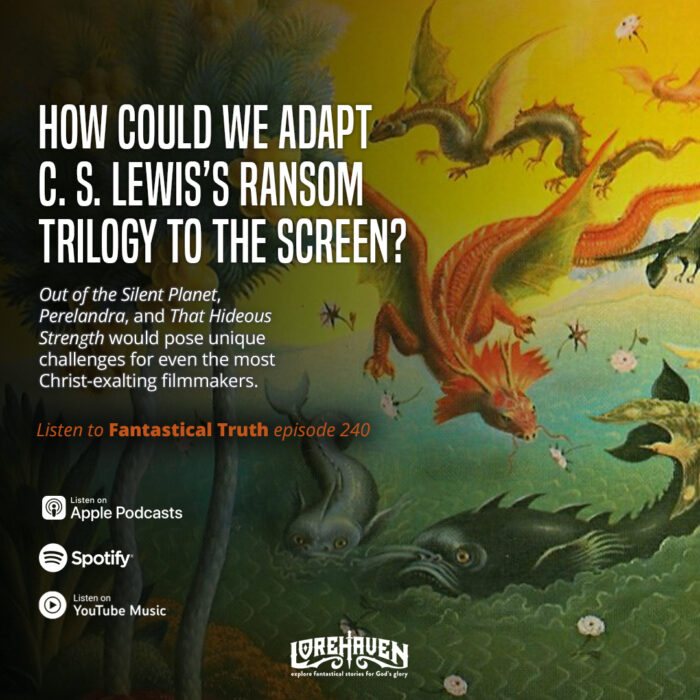Are Libraries On The Way Out?
 All through secondary school and beyond, the library was my friend. When I was in seventh through ninth grades, because of transportation issues, I spent an hour before school in the library. It was then I became acquainted with Louisa May Alcott, Jane Austen, and the Brontë sisters. During those years I also discovered The Black Stallion and all his offspring.
All through secondary school and beyond, the library was my friend. When I was in seventh through ninth grades, because of transportation issues, I spent an hour before school in the library. It was then I became acquainted with Louisa May Alcott, Jane Austen, and the Brontë sisters. During those years I also discovered The Black Stallion and all his offspring.
As I grew older, I learned the library was a repository for periodicals as well as books. I turned to many of its resources for research.
Now as the book industry feels the effects of the technology revolution, I wonder if libraries have a future. I am fortunate enough to live in a county that utilizes a library share approach. If my very small branch of the library doesn’t have the book I want, they will borrow it for me from one that has it. I also benefit from a substantial church library. We have between 11,000 and 12,000 volumes–from picture books, middle grade and young novels, adult fiction, biographies, other non-fiction, and research tools. All Christian.
But what, I wonder, will happen to these libraries as more books become digitalized? Will each person carry around their own customized library within their ereader? Will Amazon with it’s lender-for-a-fee approach (see Amazon Prime) replace libraries?
Or is there a future for libraries? Can they adapt to the new technology, and even make use of it? I know some are trying by installing computers which can handle research, for instance, and can become a reader for books in the public domain. But what else can libraries do or what should they do if they are to continue?
 Or should we eventually concede that as print books become a smaller percentage of all books, libraries will shrink and fade and disappear in the same way book stores are?
Or should we eventually concede that as print books become a smaller percentage of all books, libraries will shrink and fade and disappear in the same way book stores are?
Will libraries remain for sentimental purposes, as types of museums to a time past where the rare masters can be viewed but not handled? Or will libraries reinvent themselves and become an even greater force in making reading material available to the public at large?
Do we care?
I suspect the answer to that question is the most critical one. If as a reading society, we don’t care about the free availability of reading material on nearly any subject, we may be creating a gatekeeper much more restrictive than any publishing company has been. The materials once available because of our free speech rights and our antipathy to censorship, may simply become unavailable because there is no sales outlet carrying them and no library.
 Perhaps I’m crying wolf or shouting that the sky is falling–but of course, you’ll only know those literary references if those stories continue to be available to the public at large. Or if someone in the book or entertainment business figures out a way to make a profit by continuing to produce them. But if libraries are preserved, anyone can read about Chicken Little or the prankster shepherd boy–anyone at all.
Perhaps I’m crying wolf or shouting that the sky is falling–but of course, you’ll only know those literary references if those stories continue to be available to the public at large. Or if someone in the book or entertainment business figures out a way to make a profit by continuing to produce them. But if libraries are preserved, anyone can read about Chicken Little or the prankster shepherd boy–anyone at all.
So what do you think about libraries? Do you use them? Do you think they have a future? What should libraries do to insure they’ll have a place in society in the future?










































My daughter and I go to the public library about once a week. Without the library we could not afford to purchase enough books to satisfy her reading appetite.
I think all books should be free to read if they’ve been around for a while. I have noticed our library gets new books in fairly quickly, and sometimes I wonder how authors could make any profit when I can read their latest release on-loan from the library. But, if I don’t know if I’m going to like a story or not I will look for it in the Library first, or see if I can borrow it from whoever recommended it to me. I’m not willing to pay for disappointment. I will gladly purchase any book that I’ve been eagerly awaiting from my favorite authors to support their writing.
I’m guessing from how busy our library is that libraries are not going to disappear anytime soon. Not only is there free access to all kinds of stories and information, ours provides wifi, computers, internet. And many books are now available to be checked out digitally- to be read on an e-reader- and you don’t even need to go to the library to check them out. Like the physical books they only have limited copies they can loan, and you may be on a waiting list, and you can only have it on your device for the regular checkout period- but you can check out digital books from our library. I’ve only checked out one book that way so far because I still prefer to have a physical book in my hands if I can, but my wife has checked out a few that way.
I’m talking about Oklahoma City’s Metropolitan Library System if anyone is curious: http://www.mls.lib.ok.us/
I heartily echo and repeat what Patrick said above and, as a librarian myself, I urge people to remember that there are many out there who cannot afford to buy e-readers or computers or even books, be they physical or digital. So I don’t see libraries disappearing any time soon. What we have seen over the years is a marked decline in nonfiction circulating, mostly due to everything being available to research on the Internet. Most libraries — even the statewide system here in Wyoming — have incorporated e-book checkout into their collection. And more and more, younger librarians are being pressed into service as informal tech support for patrons who buy e-readers (or get them as gifts from well-meaning children) yet have no clue how to operate device.
So while the physical collections of libraries may shrink, there is still a great deal of use of the library as a community gathering place and an educational resource. Never mind the fact that, as I tell people, you don’t have to know any passwords or PINs or logins or run updates or wait for files to load or for a device to recharge when you pick up a real book 🙂
I’ve used my area’s public libraries extensively for borrowing fiction. I also enjoy the browsing the shelves, and leafing through the old books.
I haven’t been going to the library as often lately, and the biggest competitor of my use of the library has been Christian speculative fiction, because the CSF novels I’ve read aren’t available from the library system. I could completely satisfy my desire to read mainstream high fantasy from the public library system; I can tolerate the waiting lists. Before I found the CSF community, fantasy novels from the library were the only books that I ever cared to read.
I don’t think libraries are going to disappear anytime soon!
I’ve had a library card since I was six, and have gone consistently every 2 or 3 weeks to check out books! (Granted, I’m only in my twenties . . .)I used to take out a dozen Nancy Drew mysteries at a time . . . my parents could have never afforded to keep me in books 🙂
And I actually work part-time at my local library — there are always people coming in! For a town of under 20,000 I see a lot of support for the library. Now a lot people do come in for wifi or computers or DVDs or help researching genealogy, but a LOT of people come in for books. We also have several homeless people, who, while they can’t check books out, come in every day to read. And I know a lot of people coming in couldn’t afford books any other way, especially the way the economy is right now.
I’ll always remember one man, who regularly gets books, telling me that the library was the one place he really felt he could see his tax dollars put to good use 🙂
I just can’t imagine a world without libraries . . . unless it’s a dystopia.
I also don’t think e-books will ever replace print. We need both. And the ways that e-books can be invisibly censored or removed from personal devices is really just disturbing if you think about it.
I’d miss libraries if they were no longer around. Besides my college library, which is mostly academic, I regularly visit the local public library. I’d still rather read print books if given the chance, so I regularly bike back with 15-20 books.
Also, both libraries recently had used book sales. Between the two, I picked up 17 books for $11. You can’t do that with used ebooks.
In addition to renting out books, libraries provide DVDs, CDs, magazines, and a nice, quiet atmosphere. They usually also provide free meeting rooms, free Internet use, and all sorts of programs. Many libraries host everything from visiting authors to book discussions to movie-showings to flower displays.
At this time, I don’t think libraries are in any danger of losing their support. Like the fire department, it’s a rare public institution that nearly the entire public supports. And I don’t think the print books are going anywhere anytime soon, either. Every library has thousands already, and they keep on buying.
My library branch has a coffeehouse in it; another library in the area has a Panera. Like Starbucks in Barnes & Noble, it takes advantage of one of the most delicious combinations in life: coffee, sugar, and books. Add quiet, and you really have something lovely.
My library is excellent (and not just on account of the coffeehouse). So is my library system. It allows patrons to request books from other libraries in the county and from a network of college libraries. Also, it’s very good at buying the materials patrons recommend. And twice every year it hosts huge used book sales.
I have to say, I’m heartened by these comments about good libraries and the ways they are keeping up with the changing technology. I think the lending ebook add is necessary. I think making wifi available is a huge draw. Great to hear these advances and the support libraries are still receiving.
Interestingly, my town just completed the new library a year ago–a project started some five years ago because the old facility was just too small to house all the extras–DVD’s, computers, and books they needed. I hope we see that new facility get a good workout.
Becky
For books, we tend to buy a lot of books — because if they’re good, we want to reward the author. (And usually the newer novels that we enjoy aren’t at the library anyway.) Yet there’s still nothing like going to the library, talking quietly, and browsing.
Interestingly, just today my wife stopped by the library to pick up a DVD to use for a class. We enjoy DVD rental services such as Redbox and Netflix, and online streaming services such as Netflix (again) and Amazon Instant Video. But hey, sometimes we need something faster and of course freer. Our local libraries are indispensable.
Many local libraries also benefit from special taxing districts. Those don’t go away easily — which lends further support to libraries’ longevity, even if they weren’t used!
Do the 22 books I have out say anything 🙂 I have children who love to read and there would be no way I could keep them stocked with books if it wasn’t for the library.
I have half-lived in libraries all my life. In big cities and small, with old-fashioned card catalogues, dusty archives, or whiz-bang electronics. Your question is a worthwhile one, because the cost of running free services for internet, the many subscriptions, and the ever-increasing number of materials in stock is going up all the time. The OED, for example, is now incredibly difficult to get as a hard copy. Eighteen volumes? Twenty-three? It’s big. The yearly subscription fee for a library is not cheap, and doesn’t really compare with buying the material. Encyclopedia Britannica. Lexus Nexus. A lot of what good libraries offer gets expensive, and the institution’s dependency on an outside source for electronic data (rather than a physical item that can be kept or sold at a book fair) is more than a little scary.
Most libraries are developing new ways to handle their needs and issues. Creating a community of libraries who share. Inventive incentives, like the aforementioned cafe. Installing self-checkout stations for patrons (recent advance at my library). What gets thrown by the wayside, I think, is that old adage of visiting the library to read my old friends. Libraries services may be diversifying, but their space isn’t. The stacks are constantly thinned to make way for the explosion of new writers. Your old friends–the books you have known and loved forever–get pulled when they aren’t in circulation regularly. Writers you have always been able to find at the library are no longer in the stacks, because newbies have taken over their shelf space.
I want my oldies but goodies back!! 🙂
A lot of libraries honestly are stuck in the 90s. They think their mission is to make sure people can use computers, in an age where you can buy a laptop for under $300, or even less. Or they try and keep people supplied with DVDs like a free video rental store, or the latest potboilers when you literally can go online and watch so many free movies or movies for $9 a month its ridiculous.
heck, seventy buck Kindle, twenty buck a month internet, and you can read so many free books that you’ll probably spend more on gas getting back and forth from the library than the Kindle itself. I think libraries need to realize that they should now be archives for harder to find books or social places to make sure children love to read than free stuff for people. I learned to love reading in a library due to the programs they had there for kids; you can get books easily enough. Heck, even the Goodwill is better than the library at times, if that.
Or research facilities. Google is not a very productive research environment, even if it might be able to find all the information you want. I can’t clear my mind well enough to research and study effectively at home. Colleges have libraries, but I doubt college libraries primarily exist to give the students “free stuff.” At the community college I went to, no book that was required for any course was available to be checked out, because they wanted students to pay top-dollar at the campus bookstore. However, colleges need libraries, because research and studying are (theoretically) supposed to be the primary activities of students and professors.
Yeah, Google can be very bad for in-depth research. So much clutter and spam, and even knowing search tricks can’t help when you get hundreds of thousands of results for even complex queries. Then you get the whole personalisation thing, too…
Here’s a good poster on this theme:
http://jabberworks.livejournal.com/525413.html